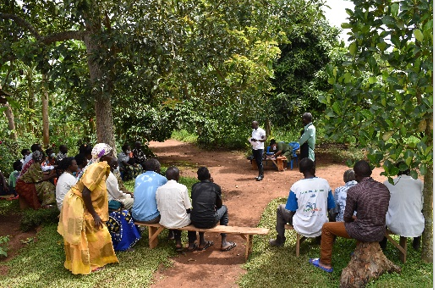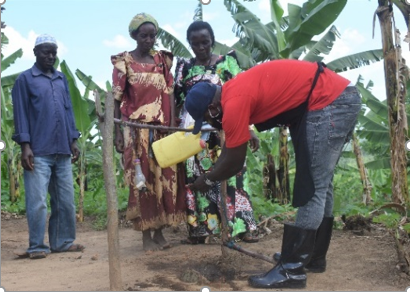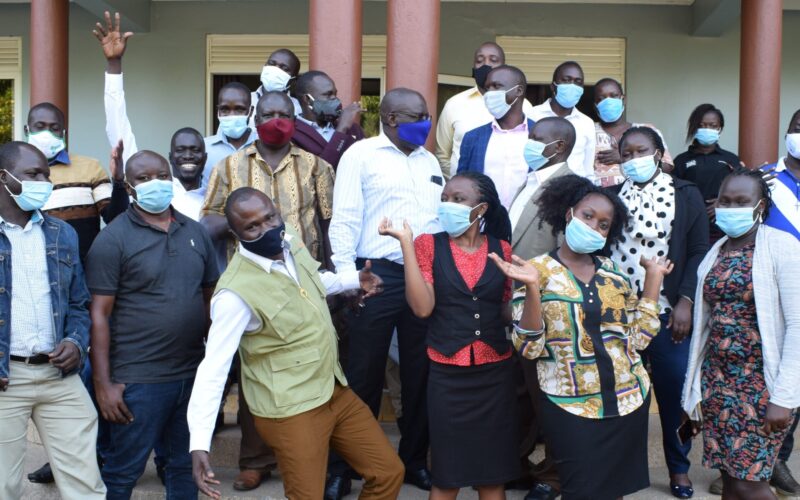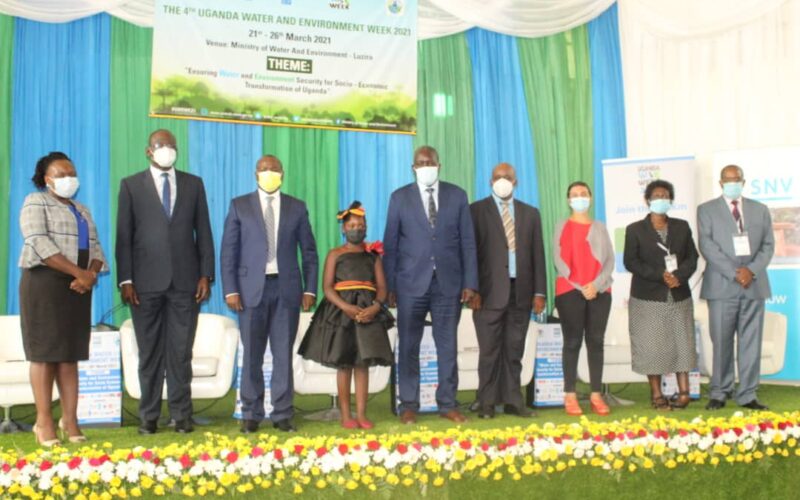A case of Tukwatirewamu household cluster in Nabigasa sub county, Kyotera District.
Uganda confirmed her first case of COVID-19 on March 21, 2020, the virus eventually spread with cases being reported across districts in the country. By August 2020, Kyotera district had reached 132 confirmed cases of covid-19 with no death and among these included 1 case from Bethlehem parish and several other contacts. This informed the selection of Kibonzi B village in Bethlehem parish, Nabigasa Sub County, Kyotera district as one of the beneficiary communities for the HBCC project. Data collected by Amref in September 2020 showed that Kibonzi village had an estimate population of 828 people (male 345, female 483) and 138 households of which only 48% and 10% had latrines and handwashing facilities respectively. This situation required undertaking deliberate actions in changing hygiene behaviors among communities. Through the Hygiene behavior change coalition project funded by DFID, Amref Health Africa in Uganda is implementing activities aimed at reaching people vulnerable to COVID-19 with critical information on personal hygiene in order to improve, reinforce and sustain related hygiene practice, as well as support communities to access improved hygiene services.
In order to reach the most vulnerable to Covid-19 infection, Amref Health Africa adopted the Umoja-plus approach to implement rapid behavior change actions for prevention and control of the Covid-19 outbreak targeting households, collective vulnerable sites and public spaces. “UMOJA” (meaning oneness) is a model that uses a “prefect cluster” approach where members of household clusters (e.g., 10-20 households) learn and consistently practice correctly the recommended hygiene behavior. Members from the perfect households are rewarded with hygiene promotion materials like soap and are charged with the responsibility to lead communities to adopt similar hygiene behaviors. Clustering is nominal where households that are next to each other form a cluster for the purpose of promoting positive behaviors on hand hygiene and environmental sanitation. Umoja approach explores exemplary leadership, hand hygiene & environment sanitation countdown to foster inclusive behavioral change at household & community level.

Tukwatirewamu household cluster was formed on September 21, 2020, in Kibonzi B village, Bethlehem parish, Nabigasa Sub County in Kyotera district. The cluster is comprised of 31 households with 167 members whose role is to majorly promote positive hygiene behaviour among members. At its formation, only 32% and 48% of households in this cluster had hand washing facilities at the entrance of the home and latrines respectively, latrine coverage was at 65% while 35% of households used to do open defecation, 77% had bath shelters, 52% refuse pits and 68% of households had drying racks for proper handling of utensils. Stephania Nanteza, the VHT of Kibonzi village says, “Initially we lived in fear because we had one of our community members suffer from Covid-19, we did not have information about Covid-19 and the way suspects in the community were picked was scary. Amref sensitized us on the recognizing signs and symptoms of Covid-19, preventive measures like washing hands and where to report suspected cases”.
Amref supported and facilitated CHWs to form household clusters where they selected household cluster heads to lead each of the clusters. Joint household visits were conducted together with Local council committees, Sub County technical and political teams to sensitize, guide and support household clusters’ members to construct facilities in their homes. Rose Nakwangi, the household cluster head for Tukwatirewamu household cluster confirms that, “as a cluster, we agreed that every household must have a hand washing facility at the entrance of the home and a latrine including all other sanitation facilities and this was done within one month. Fear and anxiety are all gone, we are proud that no Covid19 case has been reported since we started to work with Amref in our community because our homes are clean and people practice good hygiene behaviors”
Data collecetd in this household cluster in December reveals that latrine coverage and hand washing are now at 100%. The outstanding clusters will now be helped to utilise the household cluster setup to engage in projects that benefit all the group members through trainings on group dynamics among others.




